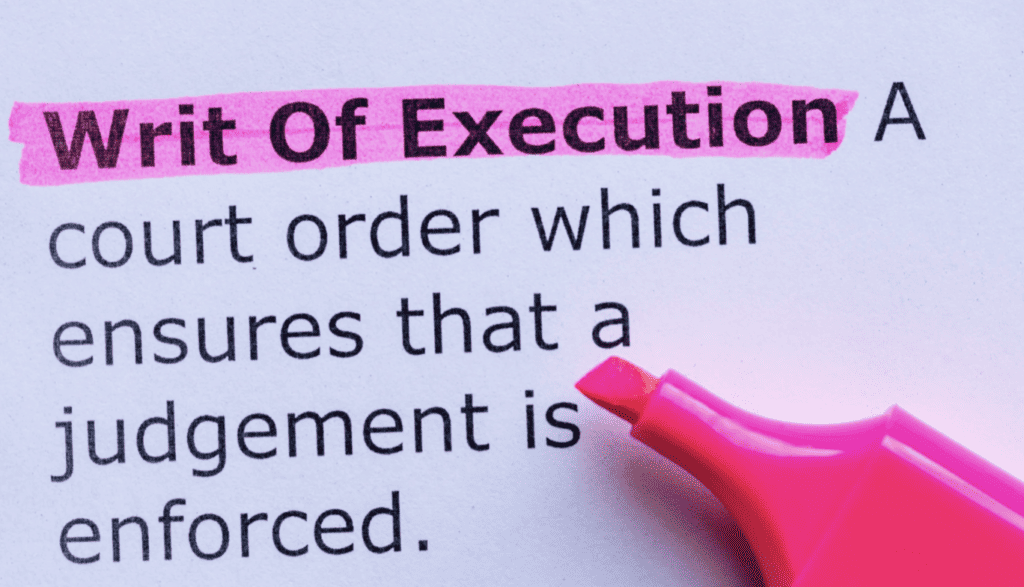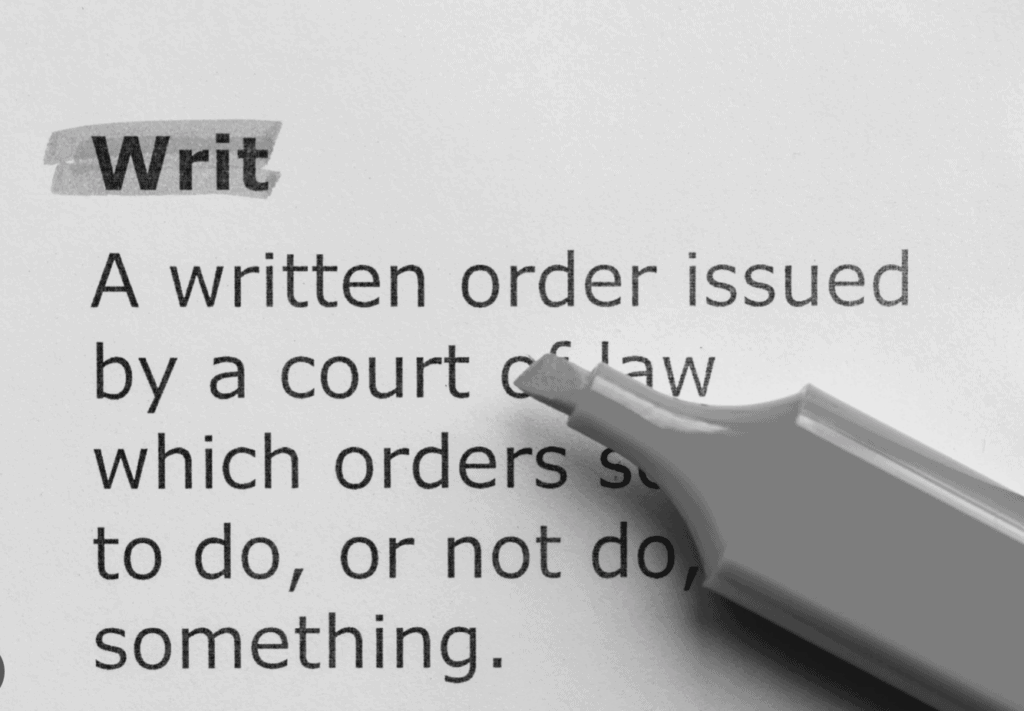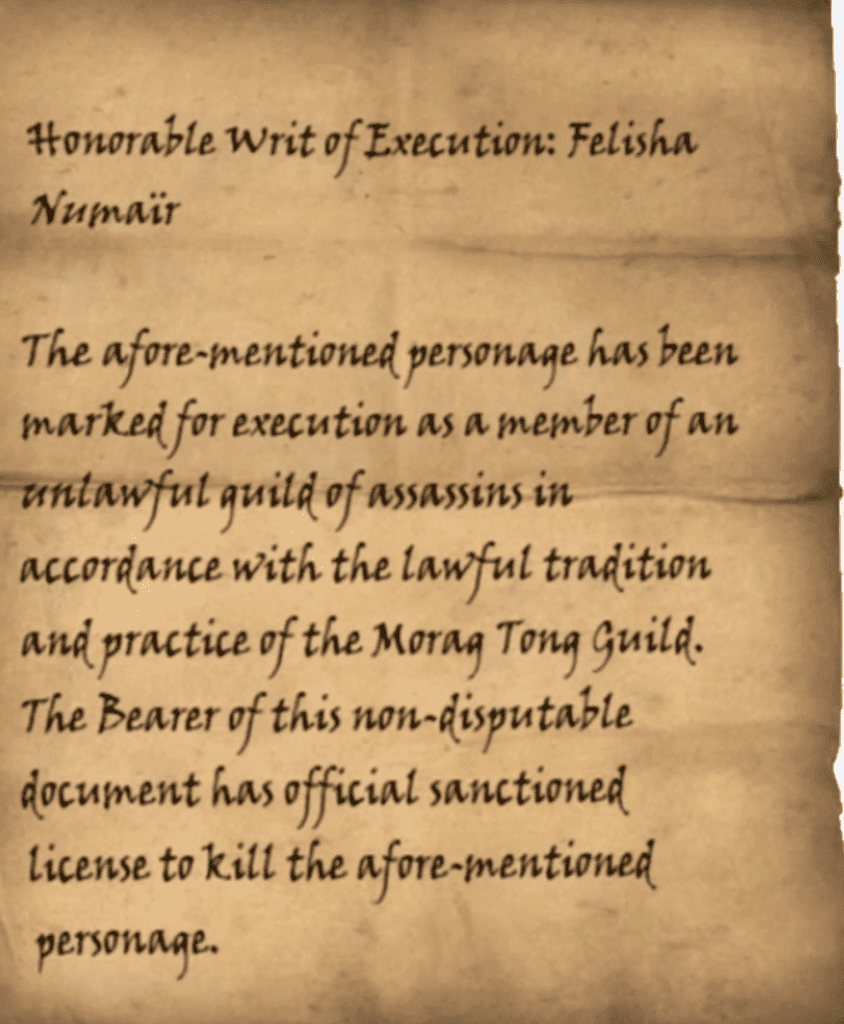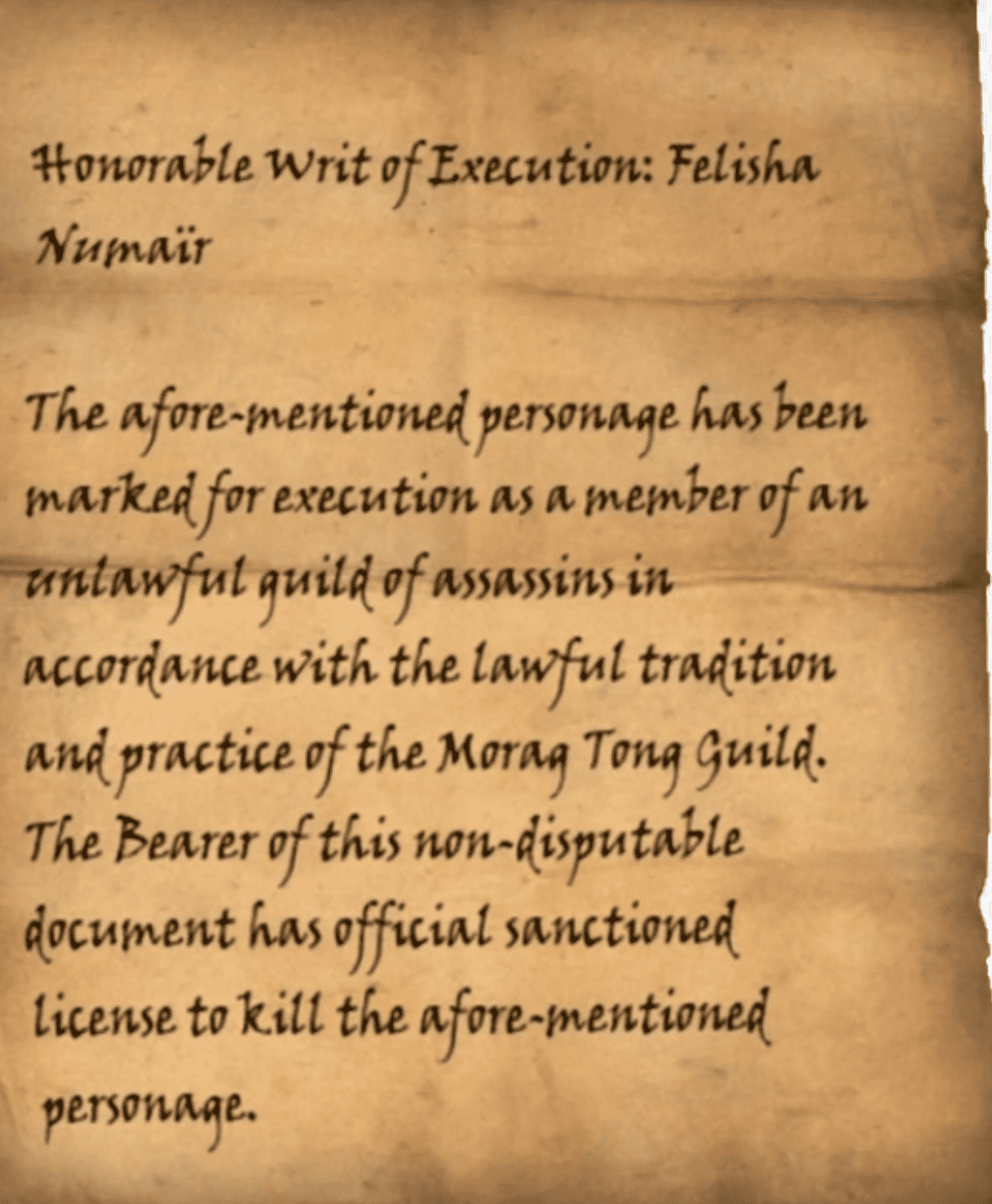Writ Types and Cases in Bangladesh
A Writ Petition is a specific request to the Supreme Court’s High Court Division. In writ jurisdiction, the Hon’ble Court gives instant relief against an administrative authority’s illegal or inappropriate action, as well as judicial or quasi-judicial action. The Bangladeshi Constitution empowers the High Court to issue writs, directives, and orders, among other things.
Writ is a very powerful weapon at a citizen’s disposal, allowing him to protect his rights by filing a petition before the Supreme Court’s High Court division under Article 102 of the Constitution against an illegal breach of an individual’s rights. This page examines writ: its types and cases in Bangladesh.
Writ Types
Writ Explained
Writ is a vital legal remedy available to the citizens of a welfare state for the purpose of enforcing and implementing substantive law if there has been an infringement of their fundamental rights, such as an illegal act of authority, an error of law, and so on. In Bangladesh, this right is exercised by submitting a written document, i.e. a writ petition, to the High Court Division of the Supreme Court under Article 102 of the People’s Republic of Bangladesh for its directions or orders on the matter of fundamental rights enforcement. Following that, the court summons or orders the opposing parties, i.e. the respondent/s, to do or desist from doing something. The primary goal of the writ is to protect people’s fundamental rights and to enforce those rights.
Types of the writ

The Bangladesh Constitution refers to the following types of writs:
- Writ of Habeas Corpus
- Certiorari,
- Prohibition,
- Mandamus, and
- Quo-Warranto
Writ of Habeas Corpus:
The term ‘Habeas Corpus’ is a Latin term that meaning ‘have his body,’ implying that one has a body that must be produced before the court. Following the filing of a Habeas Corpus writ petition, the court directs the imprisoned individual to appear in court, whether in prison or in private custody. Following that, if the cause presented by the concerned person or authority indicates no valid justification for detention, the court might order the detained individual’s immediate release, ensuring his or her personal liberty.
Example:
If a person is arrested or imprisoned for a false allegation or reasons, such as murder, then he or she, or if he is incapable, has the option of filing a writ of habeas corpus for his liberty and subsequently having to prove to the court that s/he did not commit the crime.
Writ Case citation
Bangladesh v. Habiba Mahmud, 45 DLR (AD) 89
The Court must strike a balance between the State’s duty to restrict harmful actions and the citizen’s right to personal liberty.
40 DLR (AD) 178, Sajeda Parvin vs. Government of Bangladesh
The material issue is the reality of detention, not the date of the detention order.
1 BLD (AD) 488 Jamil Huq vs. Bangladesh and others
All that can be mentioned is that the grounds on which a decision of an Army Act Court Martial can be challenged by habeas corpus will be analogous to those available under sub-Article 5 of Article 102 of the Constitution.
AKM 42 DLR 189, Azizul Hoque vs. Bangladesh
Where a specific criminal charge has been leveled and a specific criminal case is underway, the executive authority should not use resources for preventative detention- The executive authority has a solemn constitutional commitment to act in aid of the Supreme Court.
55 DLR (HCD) 194 Korban (MD.) vs. Government of Bangladesh and others
The detention is ordered to be released within three hours, and District Magistrate Abdul Huq is ordered to pay him a compensating fee of Taka 5,000 for a rash exercise of power that restricts a person’s liberty.
Writ of Certiorari
Certiorari means ‘to be certified’ or ‘to be more completely informed about’. Ceriorari was originally a judicial writ. However, throughout time, the scope of this writ’s jurisdiction grew to include judicial, quasi-judicial, and even administrative responsibilities. This writ power has authorized the Supreme Court’s High Court Division to control the action of the inferior or subordinate courts, i.e. whether the subordinate courts in Bangladesh are operating inside or outside of their jurisdiction.
Example:
A writ of certiorari can be submitted by the aggrieved party or, in some situations, by anybody against the lower court, tribunal, or authority that went beyond its jurisdiction, abused its power, or violated the concept of natural justice.
Wriy Case Example
Major Hasan Reza vs. Saudhangshu Bhuson Das, 11 DLR 117 (1959).
The High Court’s power to issue a writ of certiorari cannot be used to alter a conviction or to remand the case for a proper sentencing.
Dinajpur, Bharat Tewari vs. N. Hossain Spl Magte., 1958 10 DLR 481
A writ of certiorari or other prerogative writ will be issued against an order against which there is no appeal or review.
Momin Motor Company vs. Dhaka Regional Transport Authority, 10 DLR 284 (1958).
When a quasi-judicial entity, such as the regional Transport Authority, passed an order against a person adversely impacting his interests without notifying him, he was granted relief through an application for a writ of certiorari.
Sk Ali Ahmed v. Secretary of Home Affairs, 40 DLR (AD) 170, 48 DLR (AD) 20
Even though the statute is silent, notice must be given if any person’s right, interest, property, or character is sought to be affected. When a statute mandates notification, the authority cannot abdicate its responsibility.
5 BLT (AD) 261 Bangladesh vs. Ashraf Ali & Anr.

The learned Judges of the High Court Division exceeded their jurisdiction when they used their certiorari power to overturn an inferior tribunal’s decision.
Writ of Prohibition
Prohibition is a preventive writ that means ‘prohibit’. It empowers the High Court Division to prevent a court, tribunal, authority, or person from doing something that is not permitted by law. A writ of prohibition is issued when there is an absence or excess of jurisdiction, an abuse of power, or a violation of the concept of natural justice.
Example:
If the judicial or quasi-judicial authorities issue an order that is illegal or exceeds the jurisdiction of that court, the aggrieved party may file a writ petition against that order with the superior court, i.e. the High Court Division of the Supreme Court, and if the court finds the complaint to be true, it may issue a writ of prohibition against the lower court, i.e. the District Judge Court, and so on.
Writ Case citation
Mahfuzul Huq Chowdhury vs. M. Wali Ahmed Chowdhury
The issuance of a writ of prohibition is discretionary, and care must be taken to state properly and precisely what writ is sought.
Abdul Gafoor vs. Muhammad Tofail
Prohibition exists not just for an excess or lack of jurisdiction, but also for a violation of statute or a common law principle.
Writ of Mandamus
The Latin word for ‘command’ is mandamus. This writ is widely used, important, and necessary in the administration of justice. Through this writ, the superior court, i.e. the High Court of the Supreme Court, gives the command to require any person, corporation, inferior court, or government to do something specific related to his/her or its public duty and, in certain cases, statutory duty, imposed on him/her, them, or it by the constitution or by any other law.
Example:
If a government employee working for a public firm feels that one of his or her rights has been violated by the company’s actions, he or she has the option of filing a writ of Mandamus against that company. To obtain redress, the injured party must properly establish his or her offered information and points.
Writ Case citation
1 BLD (HCD) 304, Zamiruddin Ahmed vs. Government of Bangladesh
Mandamus can be issued even though no demand for justice was made prior to the filing of the writ petition if there are specific circumstances indicating that a demand for justice would be useless.
East Pakistan vs. Dacca National Medical Institute, 195810 DLR 343
Mandamus writ obtained for violation of basic right to association.
Professor Nurul Islam v. Bangladesh Government, 20 BLD (HCD) 377
This court may issue any order providing proper instructions for the enforcement of any of the fundamental rights, as well as mandamus orders.
M Walid Ahmed Chowdhury vs. Mahfuzul Huq Chowdhury, 8 DLR 429 (1956).
A mandamus will not be issued unless the party seeking it has not only stated on affidavit that he had demanded of the party against whom the mandamus is sought to be enforced by the writ and that such demand was met by a refusal, but has also satisfied the Court of this upon evidence, which is a principle that has been universally accepted and insisted upon as an essential and invariable condition for the writ’s issue.
Mofzalur Rahman et al. vs. The State et al. 319 BCR (HCD)
Concerning the High Court’s jurisdiction under Article 102 of the Constitution, the Appellate Division decided in that decision that a writ of mandamus from a decision of the Sessions Judge made under section 439A of the Cr.P.C. would not lie.

Writ of Quo-Warranto
‘Quo Warranto’ means ‘what is your authority?’ in Latin. It is a court remedy for an occupier or usurper of a self-sustaining public office, franchise, or liberty. It gives the judiciary jurisdiction and ability to regulate executive conduct in terms of making appointments to public positions in violation of relevant statutory restrictions, while also protecting citizens from being denied a public post to which they may be entitled. The petitioner in a writ of quo warranto does not seek to enforce his right, but rather disputes the legality of the claim of the holder of a public office. As a result, this writ can be sought by anyone, regardless of personal interest.
Example:
The Supreme Court may issue a writ against an individual or a company if it determines that there is no legal right against him/her or it, such as a person illegally holding a public office, an industry that lacks legal authority to operate, and so on.
Writ Case citation
Ahmed Nazir v. Bangladesh, 27 DLR 199; Alam Ara Huq v. Bangladesh, 42 DLR 98
No one can hold a public office unless they have a legitimate claim to such office.
Mr Justice Shahabuddin vs. Abu Bakr Siddiqui, 49 DLR 1.
The person summoned to demonstrate cause for his claim to the office must be in actual possession of it.
The District Registrar and others vs. Mohammad Abdur Rab Mia, 19 BLD (AD) 24
The petitioner did not appear before the writ court to establish any public right, but rather to further his own selfish interests. A writ of quo warranto cannot be used for such purposes.
Shamsul Huq Chowdhury vs. Justice Abdur Rouf, 49 DLR 176; Mostafa Hussain vs. S.M. Faruque, 40 DLR (AD) 10.
A person will be found to be holding a public office without lawful authority if he is not qualified to hold the office, or if some mandatory provision of law that cannot be remedied as a regulatory has been violated in making the appointment or entering the office, or if the appointment was made by a person who did not have the authority to appoint.

Group Captain (Retd) Shamim Hossain vs. Abdur Rahman, 49 DLR 628
A public office is a right, authority, and duty created and conferred by law that vests an individual with some portion of the sovereign functions of the government to be exercised by him for the benefit of the public, for the term and tenure prescribed by law, and thus it is an office in which the public has an interest.
final observations
TRW is a full-service law practice that has been dealing with Writ-related cases on a regular basis since its inception through its knowledgeable and experienced lawyers. As a result, if you require any support or consultation, please come to our office or email us at



